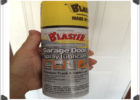The Ultimate Guide to Choosing the Best Lubricant for Your Garage Door: Enhance Performance with the Right Lubricant for Rollers, Springs, and More
![[Tags] lubricant-for-garage-door The Ultimate Guide to Choosing the Best Lubricant for Your Garage Door: Enhance Performance with the Right Lubricant for Rollers, Springs, and More](https://swopesgarage.com/wp-content/uploads/2018/03/lubricant-for-garage-door.jpg)
Choosing the Best Lubricant for Your Garage Door: A Comprehensive Guide
When it comes to maintaining your garage door, choosing the right lubricant is crucial. A well-lubricated garage door not only ensures smooth operation but also extends the lifespan of various components such as rollers and springs. However, with a plethora of options available in the market, selecting the best lubricant for your garage door can be overwhelming. To help you make an informed decision, we have put together this comprehensive guide on choosing the best lubricant for your garage door.
1. Understand the Components
Before diving into the lubricant selection process, it’s essential to understand the different components of your garage door that require lubrication. The two main components that need lubrication are the rollers and springs. Rollers allow the door to move smoothly along the tracks, while springs assist in counterbalancing the weight of the door. Both these components play a critical role in the overall operation of your garage door.
2. Consider the Lubricant Types
There are various types of lubricants available for garage doors, but not all are suitable for every component. It’s important to choose a lubricant that is specifically designed for garage door use. Some common lubricant types include silicone-based lubricants, lithium-based lubricants, and Teflon-based lubricants. Each type offers unique advantages, so it’s crucial to consider the specific needs of your garage door.
3. Silicone-Based Lubricants
Silicone-based lubricants are widely recommended for garage door rollers. These lubricants have excellent heat resistance and provide long-lasting lubrication. They also offer protection against rust and corrosion, which is beneficial for the metal components of your garage door.
4. Lithium-Based Lubricants
Lithium-based lubricants are ideal for garage door springs. These lubricants offer good penetration and can effectively reduce friction. They also have excellent water resistance properties, protecting the springs from moisture-related damage.
5. Teflon-Based Lubricants
Teflon-based lubricants are versatile and can be used on various garage door components. They provide a smooth, non-sticky finish, reducing dirt and debris buildup. Teflon-based lubricants are also known for their long-lasting performance and ability to withstand extreme temperatures.
6. Avoid Using WD-40
While WD-40 is a popular household lubricant, it is not recommended for garage door use. WD-40 is a solvent-based product that tends to attract dust and dirt, leading to increased friction over time. It lacks the long-lasting properties required for effective garage door lubrication.
In conclusion, choosing the best lubricant for your garage door involves understanding the specific needs of different components and selecting a lubricant that is designed for garage door use. Silicone-based lubricants are suitable for rollers, lithium-based lubricants work well for springs, and Teflon-based lubricants offer versatility. Avoid using WD-40 as it may cause more harm than good. By following this comprehensive guide, you can ensure the smooth and efficient operation of your garage door while prolonging its lifespan.





